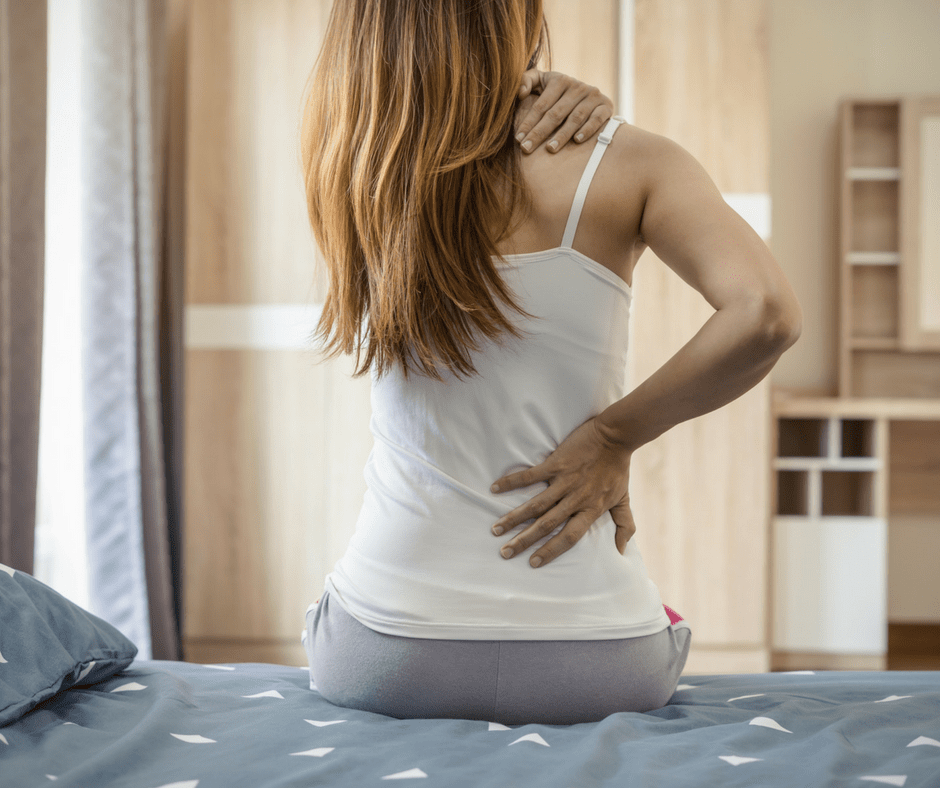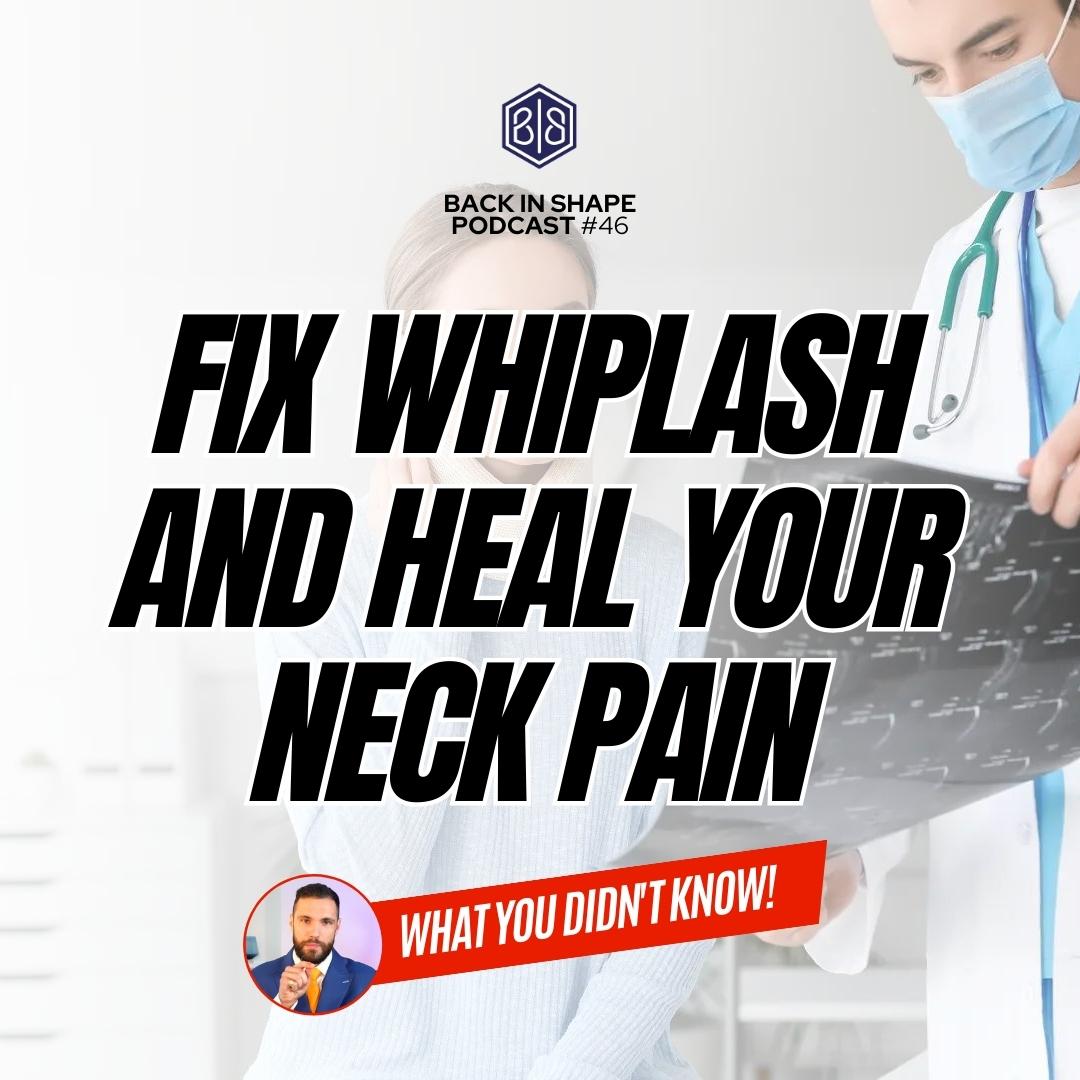The mid-back, specifically your thoracic spine, runs from roughly the top of your shoulders at the base if the neck, down past the bottom of where your shoulder blades would align. Pain in this region can be caused for a number of reasons but is usually linked to poor posture or referred pain stemming from an issue in the cervical spine (the neck). Furthermore, due to an increase in the amount of people looking down for numerous hours of the day at their smartphone, an epidemic of ‘text neck’ has led to an increase in the amount of people we see suffering from upper back pain. We’re exploring the main reasons why upper back pain can occur, and how to resolve these issues early on to prevent a long-term case of back pain from occurring.
Poor posture is the main culprit
It’s very common to experience pain in the upper back, usually between the shoulder blades, from time to time – long days at work can lead to many of us forgetting how important it is to maintain correct posture. Combine that with an evening watching television in bed or on the sofa perhaps with your neck propped up on a pillow, can lead to tightness developing in the trapezius muscle – this runs from your neck down across the inner part of the shoulder and down between the shoulder blades. If you experience tightness, one of the most useful things we may feel like doing is looking down in order to slightly stretch the muscle and get some relief – but this may be contributing towards stretching an already overstretched muscle. When you lean forward, perhaps hunched forward over your desk, or rounding your back while sitting so that your neck and head are leaning in front, the trapezius muscle becomes stretched as it’s no longer in a straight or relaxed position. While it may feel more relaxing to slouch, in reality this is actually down to those muscles becoming too weak to hold your body in the correct way it was designed to be aligned. Stretching a chronically overstretched muscle can cause pain to become more severe, not to mention the influence slouching can have on the alignment of your spine in general – which can lead to a whole host of other spinal problems to develop in the long-term.
Referred pain from the neck
It could also be likely that if you’re experiencing pain in your mid-back, it could be caused as a result of a dysfunction with the vertebras in the neck. If you neck is out of alignment, this can cause degeneration in the spine to occur more quickly – as more pressure is being put on delicate areas that aren’t designed to sustain the load. By degeneration, we mean disc dehydration or reduced disc space that occurs as a result of the discs breaking down – with typical symptoms of such changes including a chronically stiff neck or neck pain. If these changes have occurred in your neck, then looking down can squash the discs, causing inflammation and pain to refer down into the mid-back. If the discs become degenerated enough to cause compression on nerves this could cause the pain to become constant unless intervention in the form of treatment is sought out by the patient to solve the underlying cause.

A solution to the problem of mid back pain coming from the neck
Treating where the pain is occurring in the mid-back sadly wouldn’t be enough to stave off irritation in the long-term. The only way to solve the problem in the long-term is to target the true cause. If the problem is caused as a result of muscular tightness in the trapezius, preventing it from becoming tight in the first place is the right way to go. It sounds overly simple, but it can be a difficult thing to master.
The muscle is most likely becoming tight as a result of prolonged episodes of bad posture, such as a long day at the office, so the only way to fix it is to correct the posture. If the problem is in its early stages, then becoming aware of your posture on a regular basis can help you to keep in check with your body’s position. Reminding yourself periodically during the day can help you to correct your posture until it becomes natural instinct. Unfortunately at first this can be uncomfortable as the muscles have weakened over time due to not being used to hold an upright, correct posture. Over time maintaining good posture will strengthen the muscles and it will become more comfortable, it’s just a case of powering through the initial difficult phase.
The solution if the mid back pain is chronic
If the problem has become chronic, you suspect it could be down to the alignment of your spine or a problem with a spinal disc, for example if you’re suffering with other symptoms such as stiffness in the neck or referred pain into other areas of the body – you may require a deeper investigation to examine the overall condition of your spine. Your local osteopath or chiropractor, including The Mayfair Clinic if you’re based in the London area, should be able to examine your spine using physical tests, and with x-ray imaging if it’s needed, in order to identify the underlying problem. Once that has been completed, a treatment plan can be formed to give you a plan going forward to relieve the pain and resolve the problem. This form of problem can be more difficult to resolve but it’s likely that without treatment it will only become worse.
If you’ve been suffering with pain in the mid-back, we hope this guide has been useful to you to find a solution. Resolving the problem when it’s in its early stages is the best way to ensure you keep your spine in tip-top condition as you age. If you’re experiencing pain and you’re unsure as to what’s causing the problem, we offer examinations that can get to the bottom of what is causing you pain – including x-ray imaging if you need it, a diagnosis for peace of mind, and a treatment in your first session. To book an appointment or discuss your case with a member of our expert team, get in touch with us by calling or filling out a contact form.
Join Today
It couldn’t be easier to start your online back pain program today. Click the button below and on the next page you can sign up straight away.
Contact Us.
Email Us
info@themayfairclinic.com
Call Us
0203 947 32 22
Clinic Address
4 Cavendish Square, London, W1g 0PG.
